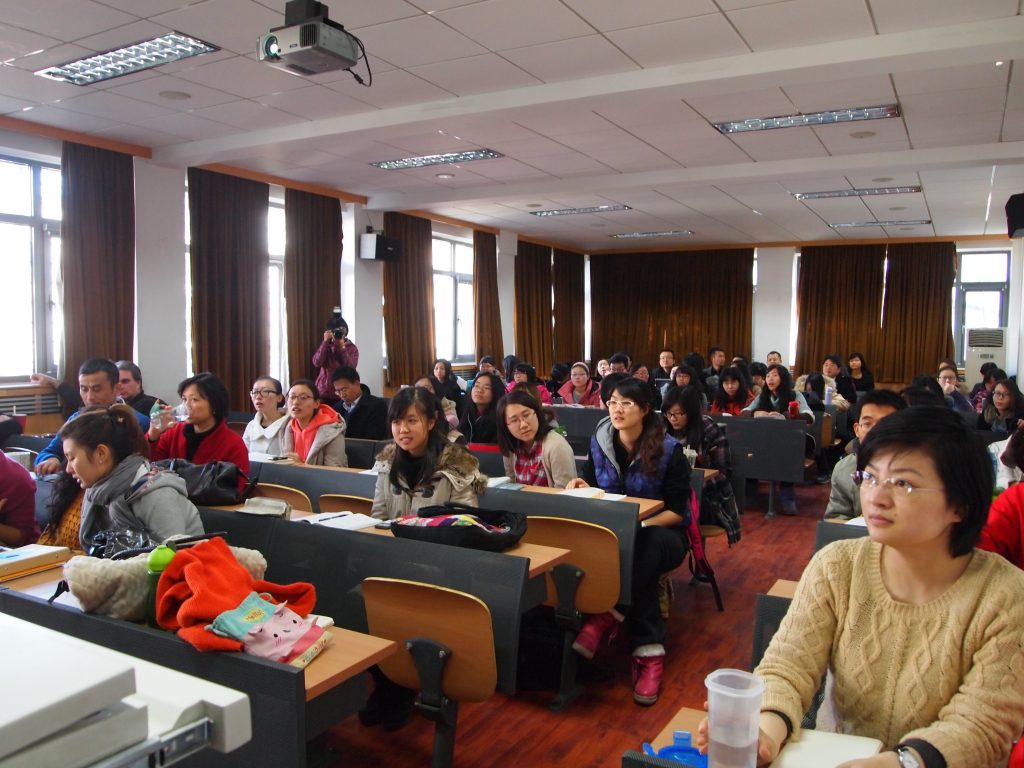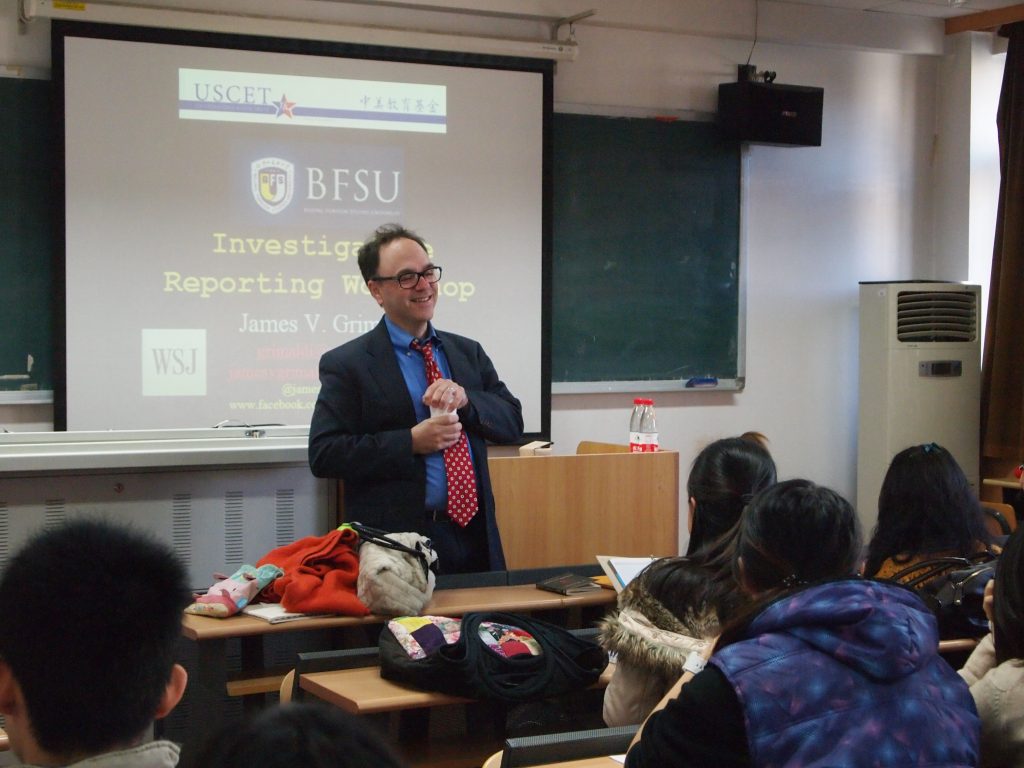In-Depth and Investigative Reporting Workshop
Renmin University | October 29-30, 2010
The second MEC workshop, In-depth and Investigative Reporting, was hosted by Renmin University’s School of Journalism and Communication. Graduate students from all MEC schools and members of the media were invited to apply for the workshop, and USCET received more than 200 applications!
Topics covered by this workshop included Development of In-depth and Investigative Reporting, In-depth and Investigative Reporting in the Digital Age, Social Responsibilities of In-depth Reporting, In-depth Reporting and Media Ethics, and How to Improve In-depth Reporting. Presenters include Pulitzer Prize-winning Journalist Deb Nelson, media educators from Renmin University, Peking University, and Tsinghua University and experts from the Chinese media including CCTV, China National Radio, News China, Southern Weekends, and Sina.com.
Workshop Summary
USCET’s Media Education Consortium Holds Second Workshop
by Xinhua News Agency reporter and former USCET intern Xia Wu
October 30, 2010 – The International Workshop on In-depth & Investigative Reporting, hosted by Renmin University, was held from October 29 to 30 in Beijing. Over ninety students from nine provinces and municipalities in China participated in this program, which provides opportunities to interact with practicing journalists, work on real-life cases, and discuss critical issues in investigative reporting.
Over a dozen journalists and editors from major news outlets in China joined the two-day panel discussions, covering topics from reporting methods, ethics to media education. They also addressed the rise of new media in an age of globalization.
“In the past, the Internet is just a platform to share information. Now it becomes a vanguard to break censorship and create space for traditional media to report stories they could not years ago,” said Zhou Yong, associate professor at Renmin University. Chen Tong, editor-in-chief of sina.com, a major news gateway in China, disagreed that despite the government’s increasing tolerance, real investigative journalists are rare in China.
Wang Keqin, from China Economic Times and probably the most well-known investigative reporter in China, also came to share his stories. Emphasizing its factual quality and social value, Wang believes that investigative reporting is “the only way for traditional media to survive.” His outspoken views on the responsibility of Chinese journalists to promote change in society triggered heated debates among panelists.
A Pulitzer Prize Winner, Deborah Nelson, now a visiting professor at the University of Maryland Philip Merrill College of Journalism, offered her insight both as a reporter and a media educator. Although journalists are protected of their independence in the U.S., she said in a lecture about her Pulitzer Prize story, “we have editors who are afraid and who don’t want to spend money to publish stories.”
Students welcomed candid discussions among practitioners, who brought real-life cases, ethical and personal dilemmas into the conversation along with critical analysis of the field and advice for future journalists.
They were also intrigued by the comparative perspective brought in by Professor Nelson, who frequently jumped into the discussion with stories about journalism practice in the U.S., some of which widely taught in Chinese journalism classroom.
Each day the workshop features a small group discussion that brings students to work on real-life cases with their mentors, the invited guest speakers from the field. “How would you find the next person to talk to after getting just an anonymous phone call?” Liu Chang, editor at China Youth Daily and winner of Fan Changjiang Prize, the highest honor for journalists in China, asked students in the group. He was later bombarded with enthusiastic questions about his personal success as an investigative reporter by the students.
Each group of students gave a presentation on their chosen topic of investigative reporting, marking the end of the two-day workshop. Their sensitivity to news reporting and detailed planning won the praise of many guests on the commentators’ table.
Around 15 students from outside Beijing were funded by USCET to participate in this workshop, including three students from Xinjiang Province. “It is not only a trip to meet top journalists from Beijing and abroad, but also to get to know the difference between East and West China,” a female student from Xinjiang said, “and no matter where each of us come from, we are one big family.”



